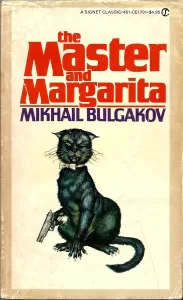The SLAPP stickers

Ok Rosie. It’s been almost three months since The Sunday Times and Dispatches published allegations of rape and sexual abuse against the comedian Russell Brand. Once again, we’re hearing talk of an “open secret”. I think the question our readers will want to know is - did you ever hear rumblings of sexual misconduct about Brand on the comedy circuit?

Well-

Actually, don’t answer that question. Let me try again. Forget Russell Brand. Let’s say, hypothetically, you heard rumblings of sexual misconduct about a comedian on the circuit. Let’s say, hypothetically, it was an open secret that this comedian had engaged in sexual misconduct. How does that open secret survive?

Well, to take Russell Brand as an example…

No Rosie, we can’t afford to talk about Russell Brand. The man uses seriously aggressive lawyers.

Comedians have been whispering about Russell Brand for years, from the nasty and gross to the downright illegal. About six or seven years ago at the Edinburgh Festival Fringe, two friends of mine talked on stage about Russell Brand being a ████…

Being an alleged ████...

…being an alleged ████ as part of their comedy show. Or they suggested it. I’m not sure. I remember both of them telling me they had been threatened by Russell Brand’s manager. Or maybe it was his agent. I can’t recall. Anyway-

I’m going to stop you there, Rosie. Do you have written evidence of this?

Charlie, obviously you don’t write things down when you are on your third glass of wine in a crowded Scottish outside bar with no seating room left.

Then you can’t say that.

I’m not saying these two comedians had personal knowledge of misconduct. I’m just giving an example of how ubiquitous these rumours were on the circuit and how aggressive his lawyers were in response. Or whoever it was on his team who threatened them - do I need to remember all these details correctly?

Let’s stick to the hypothetical, Rosie. You have two comedians who have received legal threats from a well-known comedian. Let’s say you name this comedian and he sues you for damages, claiming it’s a fabrication. It’s a stupid case - the very fact that he’s suing you actually vindicates the claim that he’s a legal bully - but to get to the point where a judge says “this is a stupid case” would take a year of legal argumentation and hundreds of thousands of pounds in legal costs. Would you take that risk? Can you take that risk?

Charlie, I’ve told you, comedians don’t have any money. Why do you think I always “forget” my card when we go out to dinner? Unless they are, you know, really famous. Like Russell Brand.

Ok, so let’s try again. This time with some sensitivity towards legal risks, please.

I don’t get it. How are we meant to talk about the silencing of sexual abuse survivors while being “sensitive” to their aggressively litigious abusers?

Alleged abusers

Sorry, alleged abusers.

Oh come on, it’s not that hard to talk about a subject like this in the abstract.

Have you ever tried to perform a standup routine in the abstract?

No but -

Well, it would make for really rubbish comedy. It’s a bit like when a politician answers a specific question with a vague platitude. It sounds feeble and weak. But while with a politician it might momentarily undermine their credibility, with a comedian it is fatal. All the best comedy is either unfiltered or appears unfiltered. This is why those in power fear it so much. As soon as comedy feels controlled, forced or affected it loses its power.

Oh come on, you can’t say a few legal threats can kill a whole standup routine.

Thing is, it’s not just about those specific legal threats. Intimidation is like poison to comedy. That’s why a persistent heckler can derail a comedy set: once fear creeps in, the whole facade of authenticity collapses. It takes only a single legal threat for a comedian to second-guess their material, soften their punches and sidestep the truth. And when the audience senses that this is what you are doing they will switch off. This applies to any sort of intimidation - it’s the same reason why online social media mobs can throttle comedy - but legal threats are particularly insidious. You never see them, the public never knows about them and yet few threats are as powerful as the threat of losing all your money in a lawsuit.

I know I was the one banging on about hypotheticals before, but I’m starting to think all of this is a little bit too reliant on hypotheticals.

Then let me give you a concrete example. In December 2018 the Guardian published a story: “Standup comedian’s husband drops defamation case”. The story was about an award-winning comedian, Louise Reay, whose husband had sued her for defamation, breach of privacy and data protection. Louise had mentioned him (though not, I understand by name) in a show, can you believe it, on free speech and censorship. He had money (because he wasn’t a comedian, Charlie) and sued her for £30,000 in damages plus legal costs and sought an injuction to stop her speaking about their relationship. Louise had to GoFundMe her legal costs and, every comedian’s nightmare, had to pre-submit her Edinburgh show to lawyers, and as any comedian knows, you are constantly changing your show to the last minute and in the moment depending on audience reaction. Her ex-husband didn’t just hurt her financially; he ruined her comedy. The idea of having lawyers pre-approve my jokes is making me break out in a cold sweat.

That’s awful. But one person’s experience is hardly evidence of a systemic problem is it?

But it’s not just Russell Brand. When rumours started circulating that an “open secret” about a predatory comedian was about to be exposed, the reaction of most comedians on the circuit was - which one? No one really doubts there is a problem, much as no one really doubts the causes. I could give you numerous other examples I know of where comedians have had to remove whole passages from standup acts, articles or books about celebrity misconduct, but these are allegations that have remained unpublished, such as -

Oh what a shame, it seems we’ve reached our word limit. Any final words, Rosie?

Yes: ████████████████████████████████████████████████████████████████████████████████████████████████████████████████████████████████████████Please get in touch at [email protected] if you’ve been impacted by SLAPPs or would like to get involved in the UK Anti-SLAPP Coalition, and visit our website at antislapp.uk/contact/ to sign up to our newsletter.

You’re going to delete that and replace it with your own campaign promotion aren’t you?

I’m afraid so, yes.

 Probably the best-known book of political satire in the Soviet Union was Mikhail Bulgakov’s The Master and Margarita, published only after the author’s death in 1966 and promptly banned, which cast Stalin in the role of the devil. As Viv Groskop wrote in her excellent re-reading of classical literature called The Anna Karenina Fix:
Probably the best-known book of political satire in the Soviet Union was Mikhail Bulgakov’s The Master and Margarita, published only after the author’s death in 1966 and promptly banned, which cast Stalin in the role of the devil. As Viv Groskop wrote in her excellent re-reading of classical literature called The Anna Karenina Fix: